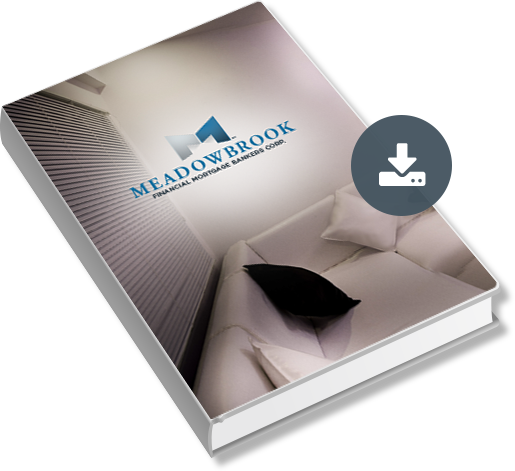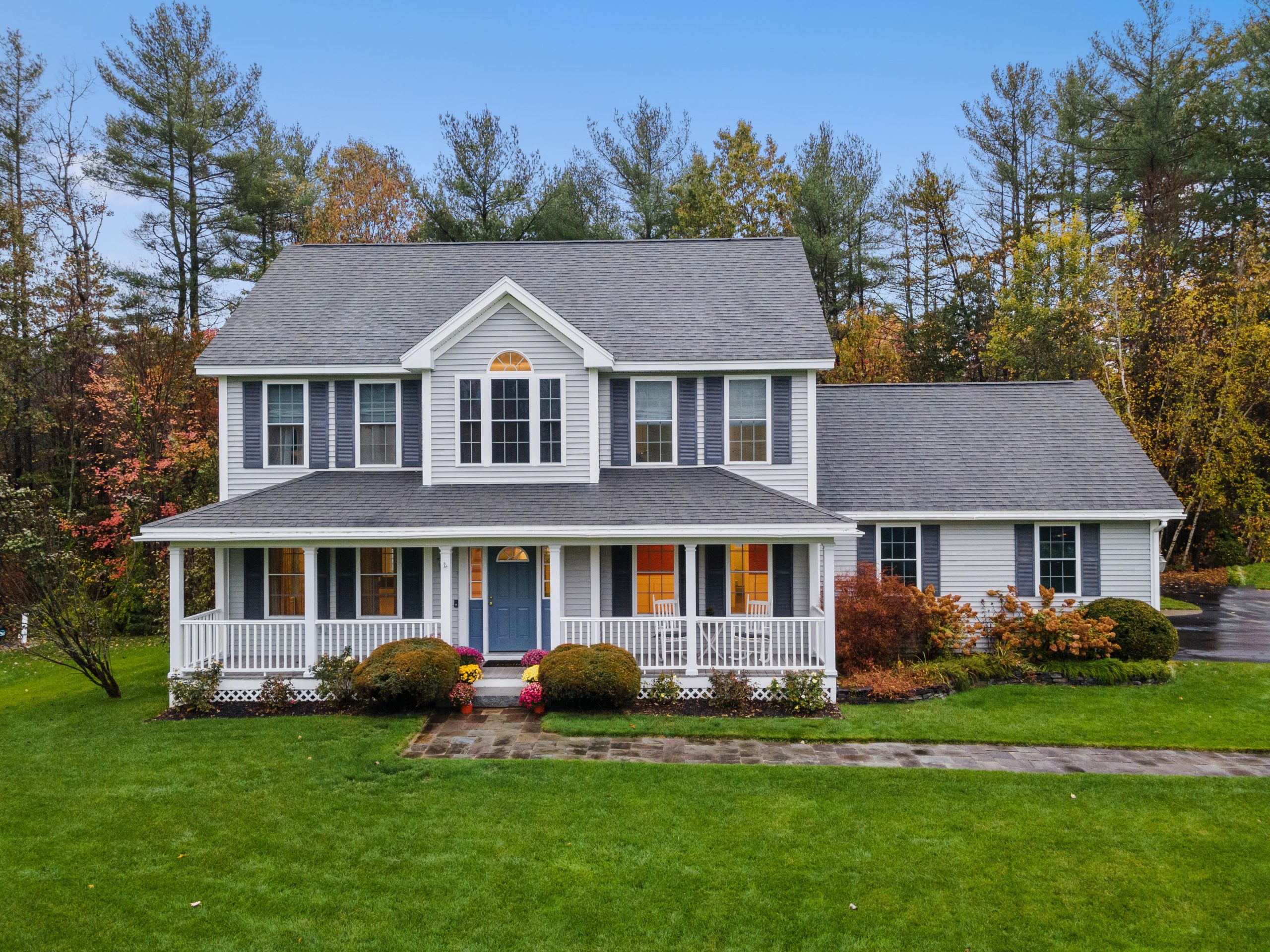Search Blog Posts by Blog Topic
Reverse Mortgages and Everything You Need to Know About Them
January 24, 2023
A reverse mortgage might work well for you if you’re a senior who is in need of cash and you have most of your net worth tied up in home equity. However, understanding the intricacies of these loans and taking a look at the associated costs is crucial because they don’t work equally well for everyone. For example, while a reverse mortgage might help secure your retirement, losing your home to foreclosure is a possibility if you’re not careful with your finances.
Numbers Speak
A press release shared through the National Reverse Mortgage Lenders Association website highlights that the housing wealth of seniors (62 years and older) grew by $520 billion or 4.91% in the first quarter of 2022 when compared to the fourth quarter of 2021. It also touched a record high of $11.12 trillion. The release suggests that the main driver behind this rise is an increase in home values by around $563 billion or 4.4%, with a $43 billion or 2.09% increase in the debt that seniors hold working as a compensating factor.
Data released by Statista shows the origination of more than 49,000 home equity conversion mortgages (HECM) in the United States in 2021. This was significantly more than 41,859 in 2020 or 31,274 in 2019. The number hovered between around 48,000 and 60,000 from 2012 to 2018. The period of the Great Recession from 2007 to 2009 saw a significant number of reverse mortgages, with the number reaching a peak of 114,692 in 2009.
While there are predictions of the U.S. going through a recession in 2023, not all financial experts, Goldman Sachs included, are on the same page. Besides, with home prices being on the higher side, it might be a good time for seniors who’re thinking about tapping into their home equity.
What is a Reverse Mortgage?
In simple terms, a reverse mortgage lets homeowners who are 62 years of age or older borrow a part of the equity in their homes. The key difference between a regular mortgage and a reverse mortgage is that the mortgage provider pays the homeowner in the case of the latter. The money you receive through this type of mortgage could be tax-free, although you need to consult with a tax advisor.
A reverse mortgage gives you the ability to keep living in your house if you’re having trouble keeping up with your finances and are considering selling because you need the money. The lender receives the funds it provides after everyone in household has passed away, if you sell the home, or if you relocate permanently.
Looking to Purchase a Home on Long IslandContact Us
What Are the 3 Types of Reverse Mortgages?
Reverse mortgage solutions come in three basic forms. These include ones insured by the Federal Housing Administration (FHA), proprietary mortgages not insured by the FHA, and single-purpose reverse mortgages provided by state/local governments. FHA-insured home equity conversion mortgages (HECMs) account for the most common type of reverse mortgages.
Home Equity Conversion Mortgages
The U.S. Department of Housing and Urban Development (HUD) is responsible for creating and regulating HECMs. While mortgage lenders issue these loans, the FHA insures them. FHA receives a mortgage insurance premium (MIP) upon the closing of your loan. This stands at 2% of the appraised value of a home or FHA’s lending limit of $970,800 (the lower of the two). The insurance is in place to safeguard a borrower in case a lender stops making payments and to protect the lender if the amount received upon selling the home is not enough to repay the mortgage completely.
From 2010 to 2013, borrowers got to choose from two variants, Standard and Saver. A Standard HECM came with a larger loan amount, where proceeds varied from 62% to 77% of a home’s appraised value, and borrowers needed to pay an upfront MIP of 2%. Saver HECMs came with smaller loan amounts, where proceeds varied from 51% to 61% of a home’s appraised value. In this case, borrowers needed to pay just 0.1% as MIP.

Proprietary Reverse Mortgages
Some lenders provide proprietary reverse mortgages tailored for homeowners who wish to get loans for high-value homes. While these loans are not subject to regulations that govern HECMs, most lenders tend to follow and offer the same consumer protections, with mandatory counseling being a part of the parcel. Since lenders usually provide these mortgages toward homes that value at $1 million or more, referring to them as jumbo reverse mortgages is fairly common.
Single-Purpose Reverse Mortgages
Single-purpose reverse mortgages offered by some state and local governments require that you use the proceeds you receive through the loan for specific purposes such as paying property taxes or carrying out repairs. These mortgages are typically for low- to moderate-income homeowners. Like proprietary reverse mortgages, these are not FHA-insured.
How Does a Reverse Mortgage Work?
Even if you’ve paid off your primary mortgage and own 100% equity in your home, there’s little chance that you might be able to borrow as much as its appraised value. The amount you can borrow depends on various factors in addition to your home’s appraised value. These include the age of the youngest borrower on the application, the HECM mortgage limit, and existing interest rates. For 2023, the HECM mortgage limit stands at $1,089,300.
Borrowers usually receive higher loan amounts as they grow older, and low interest rates also play a favorable role in the amount you may receive. In addition, you may qualify for a higher loan amount through a variable-rate reverse mortgage when compared to a fixed-rate alternative.
If you opt for a fixed-rate HECM, you receive a single lump-sum payment. With variable-rate HECMs, you may choose to receive the funds in different ways.
- Receive equal monthly payments if at least one of the borrowers uses the home as his/her primary residence.
- Receive equal monthly payments for a predetermined time period.
- Get access to a line of credit that runs until you max it out.
- Receive equal monthly payments and get access to a line of credit until you keep living in the home.
- Receive equal monthly payments and get access to a line of credit for a predetermined time period.
Looking to Purchase a Home on Long IslandContact Us
Much like a regular mortgage, interest on a reverse mortgage keeps accruing every month. In addition, you also need to account for the money you’ll need to cover ongoing maintenance costs, homeowner’s insurance, and property taxes.
Using a HECM to Buy a New Home
Seniors may think about buying a new home by looking at what a HECM for Purchase mortgage has to offer. In this case, you get the freedom to decide how much money you wish to pay each month, with not needing to make any payments also being an option.
The Three-Day Right to Cancel
Most reverse mortgage companies give you the right to cancel the agreement within three business days of the loan’s closing without incurring any penalties. If you wish to make use of this right to rescission, you need to notify your lender in writing. As a result, it’s best that send your cancellation notice by certified mail and keep the return receipt. Once the lender receives your notice, it gets 20 days to return any money you might have paid in the form of fees or charges.
Pros and Cons of a Reverse Mortgage
Getting a reverse mortgage comes with its share of possible pros and cons. For example, if you’re having trouble meeting your financial obligations, a reverse mortgage might be an effective way to secure your future. However, getting one is not free and comes with various fees and charges.
The other benefits of getting a reverse mortgage include:
- You may keep living in your house instead of selling it to get the money you need.
- You may use proceeds from a reverse mortgage to pay off your existing mortgage.
- The money you receive through a reverse mortgage is tax-free.
- You or your heirs don’t have to worry about paying any balance if the amount your home sells for is less than the amount owed toward the reverse mortgage.
If you’re wondering what the downside to a reverse mortgage is, here’s what you need to know.
- You face the risk of losing your home to foreclosure if you’re unable to keep up with property taxes, HOA fees, homeowners insurance, and other costs related to being a homeowner.
- Foreclosure is also a possibility if you don’t occupy the home in question as your primary residence.
- Since a reverse mortgage lowers the equity you have in your home, your heirs stand to inherit less.
- Getting a reverse mortgage might have an effect on you being able to qualify for government programs such as Supplemental Security Income (SSI) and Medicaid.

What Are the Eligibility Criteria?
Not everyone who owns a home and is over 62 years of age may qualify for a reverse mortgage. The other eligibility criteria include:
- You use the home as your primary residence and spend most part of the year there.
- You’ve paid off your mortgage completely or have a low outstanding balance.
- You don’t have any federal debt such as a student loan or outstanding income taxes.
- You have adequate funds to keep meeting the costs of being a homeowner or agree to use part of the proceeds from the reverse mortgage for the same.
- Your home meets the required standards.
- You go through the required counseling from a HUD-approved agency.
Is a Reverse Mortgage Right for You?
It’s common for some people to confuse reverse mortgages with home equity loans and home equity lines of credit (HELOCs). While both give you access to funds based on the equity you’ve built in your home, the similarity ends there. This is because you don’t need good or excellent credit to qualify for a reverse mortgage, and you don’t need to make repayments until you sell your home or die.
A reverse mortgage might work well in giving you access to your home equity without selling it if you:
- Don’t want the hassle of making monthly repayments
- Cannot afford to make monthly repayments
- Are unable to qualify for cash-out refinance or a HELOC
Reverse Mortgage Scams You Need to Avoid
If a contractor suggests getting a reverse mortgage so you might be able to pay for repair work easily, it’s reason enough to be wary. This is because contractor scams related to reverse mortgages are not uncommon, where they try to pressurize unwitting seniors into getting expensive reverse mortgages.
It’s also important to steer clear of ads that claim to offer special reverse mortgage deals for veterans, imply approval from the Department of Veteran Affairs (VA), or offer payment-free alternatives. Bear in mind that every reverse mortgage comes at a cost.
Looking to Purchase a Home on Long IslandContact Us
Who Owns the House in a Reverse Mortgage?
When you get a reverse mortgage, the title of the home remains in your name. This is why you continue to remain liable for paying property taxes, homeowner’s insurance, HOA fees, and maintenance-related costs. If you default on any of these payments or fail to maintain your home in the right manner, the lender may choose to foreclose on the home. Once foreclosure proceedings are complete, the lender takes possession of the home and becomes its legal owner.
Conclusion
Just like there are alternatives to the traditional mortgage, people thinking about getting reverse mortgages have other options too. For instance, if you’re okay with making monthly payments, you may look at what home equity loans and HELOCs have to offer. If you still have an existing mortgage, you may consider refinancing it after comparing interest rates. Downsizing might also be an option if you can do with a smaller space, as you’ll get a new home and some extra money.
If you’ve decided to move forward the reverse mortgage path, it’s important that you partner with a reliable lender. If you’re wondering how to choose the right mortgage provider, bear in mind that you need to look at factors such as interest rates, flexibility, and the level of customer service you receive.
Ready To Get Started?
Fill out the form below and a mortgage professional will get back to you shortly.

First Time Homebuyer’s Guide
Considering homeownership but not sure where to begin? The Meadowbrook Financial Mortgage Bankers Corp. guide to home buying will make the process easy all in one packet.
Recent Articles

Are You Better Off As a Renter or…
25 July, 2024It is common for people who have started families or have reached a certain age to feel the pressure of buying a home. While expectations…

Mortgages for Seniors – Enjoying Your Golden Years
6 July, 2024There are various reasons seniors choose to get mortgages, from upsizing or downsizing to tapping into the equity they’ve built in their homes. While getting…

What is Better, a Fixed- or Adjustable-Rate Mortgage?
12 June, 2024Becoming a homeowner is an incredible milestone that should be celebrated! Once you have decided that you are ready for this next step, it is…


